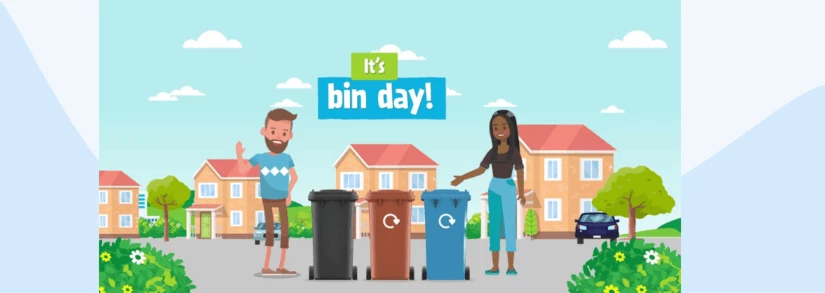Effective cardboard and paper recycling is a key component of efficient household waste management and essential for meeting national environmental objectives. Adopting best practices benefits both the householder, through optimized waste costs, and the environment.
Paper, Cardboard, and the Circular Economy
Paper and cardboard are manufactured from dried and compressed plant fibres, typically wood pulp. Cardboard construction often involves multiple layers, such as corrugated cardboard, which provides structural integrity.
The production and transport of paper materials contribute to a product's overall carbon footprint. Recycling is the primary method used to reduce the environmental impact associated with new material extraction and manufacturing.
While Ireland maintains a high rate of paper and cardboard recovery, the focus is now on the quality of material collected to ensure successful reprocessing.
- National Targets: Ireland's high paper and cardboard reclamation rates (typically exceeding 79%) compare favourably with European counterparts, but national targets require continuous focus on maximizing recovery and minimizing contamination.
- Resource Conservation: Each ton of recycled paper conserves natural resources and reduces the need for landfill space. Paper fibres can typically be recycled up to 7 times.
- Domestic Processing: Increased investment is being directed toward expanding domestic reprocessing facilities to reduce the carbon footprint associated with shipping packaging waste overseas.
Cost Management and Environmental Compliance
Correct paper and cardboard disposal helps households manage costs associated with waste collection while ensuring compliance with environmental regulations.
Waste Cost Management
All kerb side waste collection packages (Pay by Lift, Pay by Weight, and Standard Service) contain elements that incentivize households to minimize waste volume and weight:
- Pay by Lift: Charges are incurred per collection requested. Effective waste reduction minimizes the frequency of paid collections.
- Pay by Weight: Charges are directly linked to the gross weight of the bin. Flattening cardboard and reducing paper waste results in lower charges.
- Standard Service: Exceeding the predetermined maximum annual weight limit results in a penalty surcharge, often €0.15 per kilogram or more.
- Contamination Penalties: Incorrect segregation, such as placing food-soiled paper in the recycling bin, leads to high contamination rates. This can result in the bin being rejected and the householder being issued a fine, typically around €30 per incident.
Environmental Impact
Proper cardboard and paper recycling reduces the consumption of virgin wood pulp and decreases the volume of waste sent to landfill or incineration.
Furthermore, responsible disposal prevents littering and the associated negative impact on local environments and public infrastructure (e.g., blocked drains).
Guidelines for Paper and Cardboard Recycling
Recycling at Home (Kerb side Bin)
Successful kerb side recycling is contingent on three critical material preparation criteria:
- Clean: Products must be entirely free from food, grease, paint, or chemical contamination.
- Dry: All items must be dry. Wet or damp materials contaminate the recycling stream, redirecting the batch to fuel recovery or landfill.
- Loose: Items must not be placed inside plastic bags. All cardboard boxes must be flattened to maximize bin capacity.
- Handling Contamination: If a piece of cardboard (e.g., a takeaway box) is soiled with food residue, the contaminated section must be torn off and placed in the Brown (Organics) bin. The clean, dry remainder can be placed in the recycling bin.
- Shredded Paper: Small volumes are accepted. However, because processing equipment can struggle to handle large amounts, excess or finely shredded paper should be taken to a Civic Amenity Centre.
Householders should consult their waste collection provider's policy information for specific material acceptance details.
Using Recycling and Amenity Centres
Recycling and Civic Amenity Centres are available for the responsible disposal of excess household waste volumes that exceed kerb side limits.
These staffed facilities are typically free of charge for reasonable quantities of household recycling.
For unusually large volumes or disposal on behalf of a business, recycling centres may apply a reasonable fee, as their primary function is domestic waste management.
Businesses are advised to establish a formal waste management contract with an authorized commercial collection company.
Material Acceptance List
This list clarifies common materials and their correct disposal route to avoid contamination.
✅ Accepted in the Dry Recycling Bin (Must be Clean, Dry, and Loose):
- Waste paper sheets and documents
- Cardboard from boxes or packaging (flattened)
- Shredded paper (in small quantities)
- Paper-only wrapping paper (no metallic or glitter elements)
- Junk mail, newspapers, and magazines
❌ Not Accepted in the Dry Recycling Bin:
- Dirty or soiled paper/cardboard (place in Organics bin)
- Disposable coffee cups (composite material – usually General bin, unless explicitly compostable)
- Shiny, glittery, or metallic wrapping paper, ribbons, and Christmas crackers (General bin)
- Paper sachets and foil-lined packets (composite materials – General bin)
- Waxed paper (e.g., baking paper)
- Nappies, wipes, tissues, and used matches (General bin)
For clarification on specific items, consult the national waste guidance at MyWaste.ie or contact your local authority.

